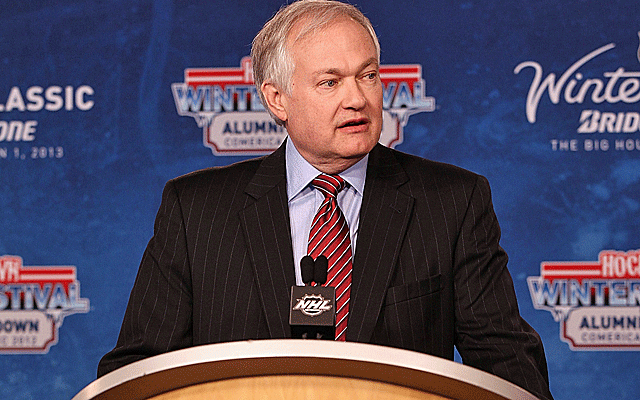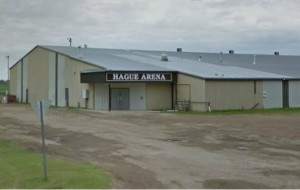The NHL and NHLPA met for four consecutive days this week, culminating in feelings of frustration after realizing that they were still far apart on some of the core economic issues plaguing these negotiations after emerging from Friday’s meetings.
“We looked at some of the numbers on the various proposals and we thought we were much closer together on the structure of a deal than the suggestions were,” said NHLPA executive director Donald Fehr. “They came back to us and said, ‘No, we’re very, very far apart on the structure of a deal.”‘
 Gary Bettman didn’t offer much in the way of his thoughts on how negotiations are progressing, but simply preferred to reiterate his message that the league is eager to get the season back on track.
Gary Bettman didn’t offer much in the way of his thoughts on how negotiations are progressing, but simply preferred to reiterate his message that the league is eager to get the season back on track.
“I don’t want to either raise or lower expectations,” said Bettman. “I won’t be happy until we get to the end result and that means we’re playing again.”
Prior to what was said after Friday’s negotiations, very little was said to the media, offering a sense of optimism that the public relations war both sides were engaging in was nearing an end and that they were committed to seriously entering into legitimate negotiations that would salvage the remainder of the season.
And while the results of Friday’s meeting may have deflated an otherwise hopeful week, it’s a good sign that both sides seem to be showing a sense of urgency at getting a deal done. And both sides seemed committed to continuing negotiations this weekend.
But fans should be asking themselves, where was this sense of urgency to get a deal done before training camp started, before two months of the season were lost, before the Winter Classic was cancelled?
If nothing else, fans can take solace in the fact that there at least appears to be a change in mentality from, “we’ll talk when there’s something to talk about,” to, “it’s better to be together and talk.”
But shouldn’t that have been the mantra all along? Why did it take more than 50 days of this lockout and the cancellation of the league’s biggest event for the two sides to get serious about negotiations? In actuality, these negotiations should have been taking place since the season ended and the Stanley Cup was awarded to the Los Angeles Kings. Both sides should have been locked into marathon negotiating sessions from the get-go in order to save the NHL season.
The frustrating part for fans is that this is an argument between millionaires and billionaires, while the fans pay good money to watch the millionaires play hockey and the billionaires reap the benefits. In the end, both sides risk alienating the fans – again. Fans who remember losing the entirety of the 2004-05 season aren’t too keen on the notion of losing another season to bitter labor disputes.
In the last lockout, the league risked losing fair-weather fans. At this point, both the NHL and NHLPA risk alienating die-hard fans – the fans that help pay the salaries of the players by paying for tickets to games, merchandise and more.
These marathon negotiating sessions should have been a standard from the get-go. The league is already more than 50 days into the lockout with hundreds of games and millions of dollars in revenue having been lost. Sure, the shift in attitude toward bargaining is a positive note, and any times the sides are engaged in negotiations it’s promising, but why it took them so long to get to this point is the bigger question. They should have been this committed to getting a deal done before the lockout went into effect or before any players signed overseas. But they weren’t.
Now, let’s hope that these negotiations continue and that a deal gets done before another season is cancelled.


